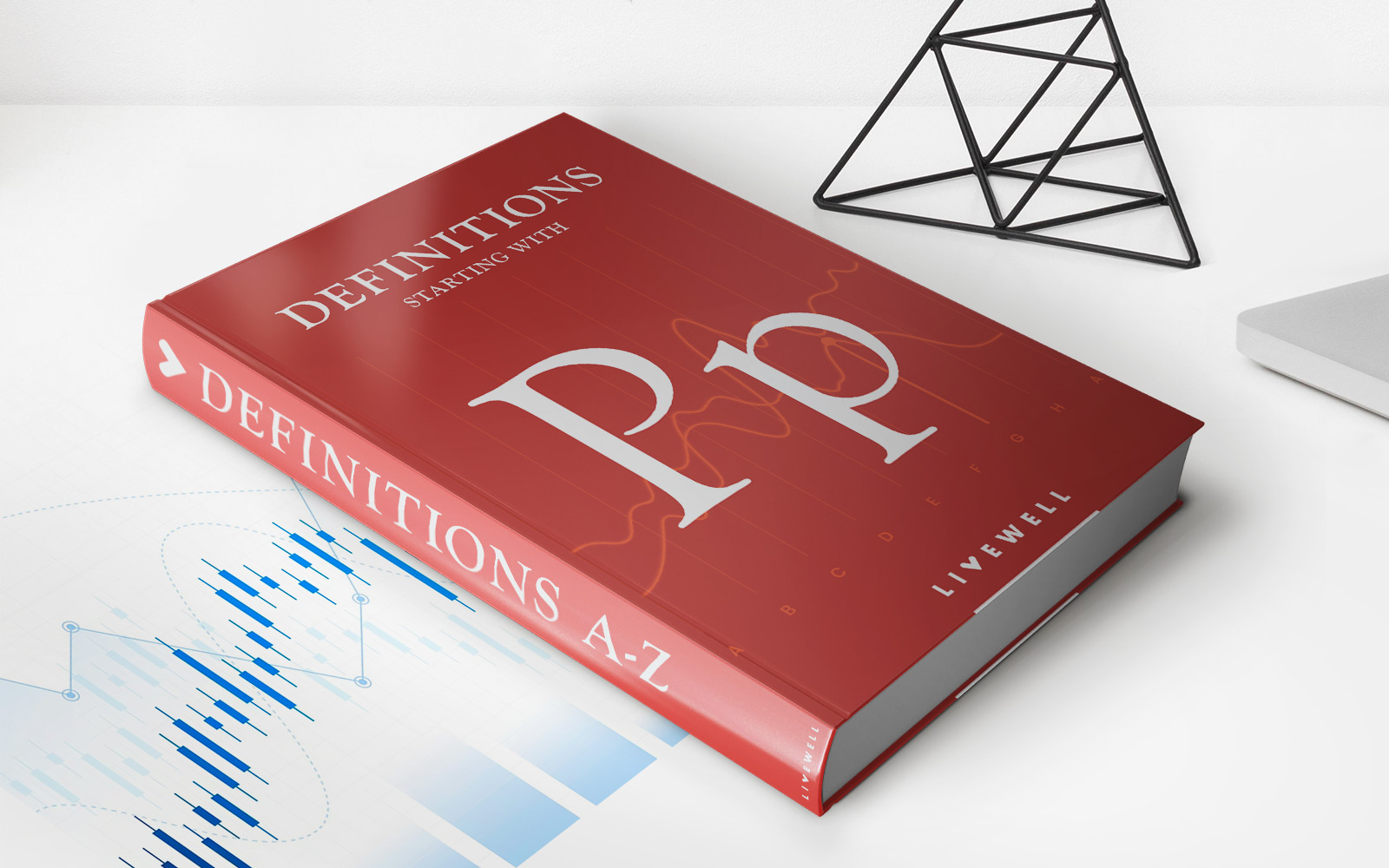

Finance
How To Contact Credit Bureau By Phone
Published: March 3, 2024
Need to contact a credit bureau by phone? Find out how to reach the credit bureau for finance-related inquiries and assistance. Get the help you need today.
(Many of the links in this article redirect to a specific reviewed product. Your purchase of these products through affiliate links helps to generate commission for LiveWell, at no extra cost. Learn more)
Table of Contents
- Understanding the Importance of Credit Bureau Communication
- Understanding the Credit Bureaus
- Why You May Need to Contact a Credit Bureau by Phone
- Preparing to Contact the Credit Bureau
- How to Contact the Credit Bureau by Phone
- What to Expect When Contacting the Credit Bureau
- Tips for Effective Communication with the Credit Bureau
Introduction
Understanding the Importance of Credit Bureau Communication
When it comes to managing your financial health, staying informed about your credit status is paramount. Your credit report and score play a pivotal role in various aspects of your life, from securing a mortgage or car loan to determining the interest rates you'll pay on credit cards. The entities responsible for gathering and maintaining this crucial information are the credit bureaus.
Credit bureaus, also known as credit reporting agencies, are organizations that compile and maintain detailed credit information on individuals. This information includes your credit accounts, payment history, outstanding debts, and other relevant financial data. The three major credit bureaus in the United States are Equifax, Experian, and TransUnion. These bureaus collect data from various sources, such as lenders, creditors, and public records, to create comprehensive credit reports for consumers.
Understanding how to effectively communicate with credit bureaus is essential for addressing any discrepancies or issues that may arise on your credit report. While many people are familiar with the process of disputing inaccuracies online or by mail, knowing how to contact a credit bureau by phone can be equally valuable. In the following sections, we'll explore the reasons why you might need to contact a credit bureau by phone, the steps to prepare for this communication, and tips for engaging in effective and productive conversations with credit bureau representatives. Whether you're seeking clarification on a credit report item or aiming to resolve an error, having the knowledge and confidence to engage with credit bureaus by phone can be a valuable asset in your financial toolkit.
Understanding the Credit Bureaus
Before delving into the process of contacting a credit bureau by phone, it’s essential to grasp the fundamental role these entities play in the financial landscape. Credit bureaus serve as centralized repositories of consumer credit information, collecting and organizing data that is used to generate credit reports and calculate credit scores. The primary function of credit bureaus is to provide this information to lenders, creditors, and other authorized parties to assess an individual’s creditworthiness.
The three major credit bureaus in the United States – Equifax, Experian, and TransUnion – each maintain extensive databases containing information on millions of consumers. They gather data from a variety of sources, including banks, credit card companies, collection agencies, and public records. This data encompasses details such as credit card balances, loan accounts, payment history, and any public records related to financial matters, such as bankruptcies or tax liens.
One of the key tasks of credit bureaus is to generate credit reports based on the information they have collected. These reports provide a comprehensive overview of an individual’s credit history, allowing lenders to assess the level of risk associated with extending credit. Additionally, credit bureaus utilize the data to calculate credit scores, which are numerical representations of an individual’s creditworthiness. These scores are widely used by lenders to make informed decisions about loan approvals, interest rates, and credit limits.
Understanding the role and functions of credit bureaus is crucial for consumers seeking to manage and improve their credit standing. By comprehending how credit bureaus operate and the type of information they handle, individuals can better navigate the process of interacting with these agencies to address any discrepancies or concerns related to their credit reports. In the following sections, we will explore the circumstances that may necessitate contacting a credit bureau by phone and the steps to effectively engage in this communication.
Why You May Need to Contact a Credit Bureau by Phone
There are several situations in which you may find it necessary to reach out to a credit bureau by phone. While many routine inquiries and disputes can be handled through online channels or by mail, certain circumstances may warrant direct communication via phone. Understanding these scenarios can help you determine when it’s appropriate to contact a credit bureau by phone and how to effectively navigate the conversation.
Complex or Urgent Issues
When facing complex or time-sensitive issues related to your credit report, such as identity theft, fraud, or significant errors that require immediate attention, contacting the credit bureau by phone can offer a more expedient resolution. Speaking directly with a representative allows you to convey the urgency of the situation and seek guidance on the most effective course of action.
Clarification and Explanation
There may be instances where you require clarification or detailed explanations regarding specific entries on your credit report. Whether it’s an unfamiliar account, a notation from a creditor, or a record that seems inaccurate, engaging in a phone conversation with the credit bureau can provide an opportunity to gain deeper insights and address your concerns in real time.
Dispute Progress Updates
Following the submission of a dispute regarding an item on your credit report, you may wish to follow up on the progress and status of the investigation. Contacting the credit bureau by phone enables you to inquire about the resolution of your dispute, obtain updates on the investigation process, and seek clarity on any additional information or documentation required to support your claim.
Guidance on Credit Improvement
If you are actively working to improve your credit profile and seeking guidance on specific strategies or actions, reaching out to a credit bureau by phone can provide valuable insights. Whether you’re aiming to address past delinquencies, understand the impact of certain financial behaviors, or explore options for credit rehabilitation, speaking with a knowledgeable representative can offer personalized advice tailored to your circumstances.
By recognizing the circumstances that may necessitate direct communication with a credit bureau by phone, you can proactively address issues, seek guidance, and gain clarity on matters pertinent to your credit report and score. In the subsequent sections, we will explore the essential steps to prepare for contacting a credit bureau by phone and the best practices for effective communication to achieve your desired outcomes.
Preparing to Contact the Credit Bureau
Before initiating contact with a credit bureau by phone, it’s essential to undertake thorough preparation to ensure a productive and efficient interaction. By taking the following steps, you can equip yourself with the necessary information and documentation, thereby enhancing the likelihood of a successful outcome from your communication with the credit bureau.
Review Your Credit Report
Prior to contacting the credit bureau, carefully review your credit report to identify the specific items or issues you intend to address. Note any inaccuracies, discrepancies, or entries requiring clarification, and gather supporting documentation, such as billing statements, correspondence with creditors, or relevant records, to substantiate your claims during the conversation.
Understand Your Rights
Familiarize yourself with your rights as a consumer under the Fair Credit Reporting Act (FCRA). This legislation grants you certain protections and entitlements regarding the accuracy and privacy of information in your credit report. Being aware of your rights empowers you to assertively communicate your concerns and expectations during the conversation with the credit bureau.
Compile Relevant Information
Organize all pertinent information related to the issues you plan to discuss with the credit bureau. This may include account numbers, dates of specific transactions or occurrences, and any previous correspondence or documentation exchanged with creditors or other relevant parties. Having this information readily available can facilitate a more focused and efficient dialogue with the credit bureau representative.
Establish Clear Objectives
Define the specific outcomes you aim to achieve through your communication with the credit bureau. Whether it’s the correction of inaccuracies, the resolution of disputes, or obtaining guidance on credit improvement, articulating your objectives in advance can help you steer the conversation toward the desired goals and ensure that your concerns are effectively addressed.
Prepare Questions and Talking Points
Anticipate the questions you intend to ask and the key points you wish to convey during the conversation. By preparing a list of inquiries, concerns, and relevant details, you can maintain a structured and focused dialogue with the credit bureau representative, maximizing the effectiveness of the interaction and obtaining the information you need.
By diligently preparing for your interaction with the credit bureau, you can approach the communication with confidence and clarity, enhancing the likelihood of a positive outcome. In the subsequent section, we will delve into the specific steps involved in contacting the credit bureau by phone and navigating the conversation effectively to address your credit-related concerns.
How to Contact the Credit Bureau by Phone
When reaching out to a credit bureau by phone, it’s important to follow a structured approach to ensure that your communication is effective and productive. The following steps outline the process of initiating contact with a credit bureau by phone and engaging in a meaningful conversation to address your credit-related inquiries or concerns.
Identify the Correct Phone Number
Begin by identifying the appropriate phone number for the specific credit bureau you need to contact. Each major credit bureau – Equifax, Experian, and TransUnion – has dedicated phone lines for consumer inquiries and dispute resolution. Verify the official contact information from the credit bureau’s website or on your credit report to ensure that you are using the correct phone number for your communication.
Prepare Your Personal Information
Prior to placing the call, gather essential personal information, including your full name, current address, Social Security number, and any relevant account or reference numbers associated with the items you wish to discuss. Having this information readily available will expedite the verification process and enable the credit bureau representative to access your credit file efficiently.
Follow the Automated Menu or Prompt
When contacting the credit bureau, you may encounter an automated menu or prompt system. Listen carefully to the options presented and select the appropriate category that aligns with the nature of your inquiry or reason for calling. This may include options for disputing information, requesting a copy of your credit report, or speaking with a representative regarding a specific issue.
Engage with a Representative
Once connected with a representative, clearly and concisely articulate the purpose of your call. Provide your identifying information as requested, and succinctly outline the specific items or concerns you wish to address. Be prepared to answer security questions to verify your identity and ensure that the credit bureau can securely discuss your credit information with you.
Communicate Clearly and Respectfully
Effectively communicate your questions, concerns, and objectives to the representative in a clear and respectful manner. Listen attentively to their responses and instructions, and ask for clarification if needed. Maintain a professional and courteous demeanor throughout the conversation, fostering a constructive dialogue that enhances the likelihood of achieving your desired outcomes.
Take Notes and Record Details
During the call, take notes on the information provided by the representative, including any instructions, reference numbers, or next steps pertaining to your concerns. Recording these details can serve as a valuable reference for future follow-ups and ensure that you have a comprehensive record of the conversation and any actions agreed upon.
By following these steps, you can navigate the process of contacting a credit bureau by phone with confidence and clarity, effectively addressing your credit-related inquiries or disputes. In the subsequent section, we will explore what to expect when contacting the credit bureau and how to prepare for the outcomes of your communication.
What to Expect When Contacting the Credit Bureau
When reaching out to a credit bureau by phone, it’s important to have a clear understanding of what to expect during the interaction. By being prepared for the process and potential outcomes, you can approach the communication with confidence and effectively navigate the resolution of your credit-related concerns.
Verification of Identity
Upon contacting the credit bureau, you can expect the representative to initiate a verification process to confirm your identity. This may involve providing personal information such as your full name, address, Social Security number, and possibly details related to your credit accounts. The verification step is a crucial security measure to ensure that the credit bureau is disclosing sensitive credit information only to authorized individuals.
Discussion of Specific Items or Concerns
During the conversation, you can anticipate discussing the specific items or concerns you have raised regarding your credit report. Whether it involves disputing inaccuracies, seeking clarification on certain entries, or inquiring about the status of a previous dispute, the representative will address these matters and provide relevant information and guidance to assist you in resolving the issues at hand.
Explanation of Procedures and Timelines
The credit bureau representative will likely explain the procedures involved in addressing your concerns, including the steps for investigating disputed items, updating your credit report, or providing additional documentation if required. They may also outline the timelines for the resolution process, providing you with an estimated timeframe for the completion of any necessary actions or investigations.
Potential Next Steps and Follow-Up Actions
Depending on the nature of your inquiry or dispute, the representative may propose specific next steps or follow-up actions. This could include sending supporting documentation via mail or email, monitoring your credit report for updates, or following specific instructions to further address the issues discussed during the call. It’s important to carefully note and understand any recommended actions to ensure that you can effectively follow through on the agreed-upon measures.
Documentation of the Interaction
Following the call, the credit bureau will typically document the details of the interaction, including any agreements, instructions, or resolutions discussed. You may receive a reference number or case identifier related to your inquiry, which can be valuable for future reference and follow-up communication regarding the matters addressed during the call.
By understanding what to expect when contacting the credit bureau, you can approach the interaction with clarity and purpose, effectively addressing your credit-related concerns and working toward a satisfactory resolution. In the subsequent section, we will explore essential tips for effective communication with the credit bureau, empowering you to navigate these interactions with confidence and proficiency.
Tips for Effective Communication with the Credit Bureau
Engaging in effective communication with the credit bureau is essential for addressing your credit-related inquiries and concerns in a productive and efficient manner. By following these tips, you can navigate interactions with credit bureau representatives with confidence and clarity, ultimately working toward achieving your desired outcomes.
Be Prepared and Organized
Prior to contacting the credit bureau, ensure that you are well-prepared with the necessary information, documentation, and a clear understanding of the specific items or concerns you wish to address. Organize your thoughts, questions, and relevant details to facilitate a focused and efficient conversation with the representative.
Remain Calm and Courteous
Approach the communication with a calm and respectful demeanor, even if you encounter challenges or frustrations during the conversation. Maintaining a courteous attitude can foster a more positive and constructive dialogue, increasing the likelihood of a favorable resolution to your credit-related issues.
Clearly Articulate Your Concerns
Effectively communicate your questions, concerns, and objectives to the representative in a clear and concise manner. Clearly articulate the specific items on your credit report that require attention, providing relevant details and supporting documentation to substantiate your claims and facilitate a thorough understanding of the issues at hand.
Listen Actively and Seek Clarification
Listen attentively to the information provided by the credit bureau representative, and ask for clarification if you encounter unfamiliar terms or procedures. Actively engaging in the conversation and seeking clear explanations can help you better understand the steps involved in addressing your concerns and ensure that you are well-informed throughout the process.
Assert Your Rights Under the FCRA
Assert your rights as a consumer under the Fair Credit Reporting Act (FCRA) during the conversation, emphasizing the importance of accurate and fair reporting of your credit information. By advocating for your rights and expectations regarding the integrity of your credit report, you can convey the significance of addressing any inaccuracies or discrepancies promptly and effectively.
Document the Interaction and Follow-Up
Take thorough notes during the call, documenting the details of the interaction, any agreements reached, and the next steps or follow-up actions recommended by the representative. Additionally, follow through on any agreed-upon measures promptly, such as submitting requested documentation or monitoring your credit report for updates as advised.
By implementing these tips, you can engage in effective and meaningful communication with the credit bureau, positioning yourself to address your credit-related concerns and work toward achieving accurate and fair representation of your credit history. These strategies empower you to navigate the process with confidence and proficiency, ultimately contributing to the enhancement of your financial well-being.














